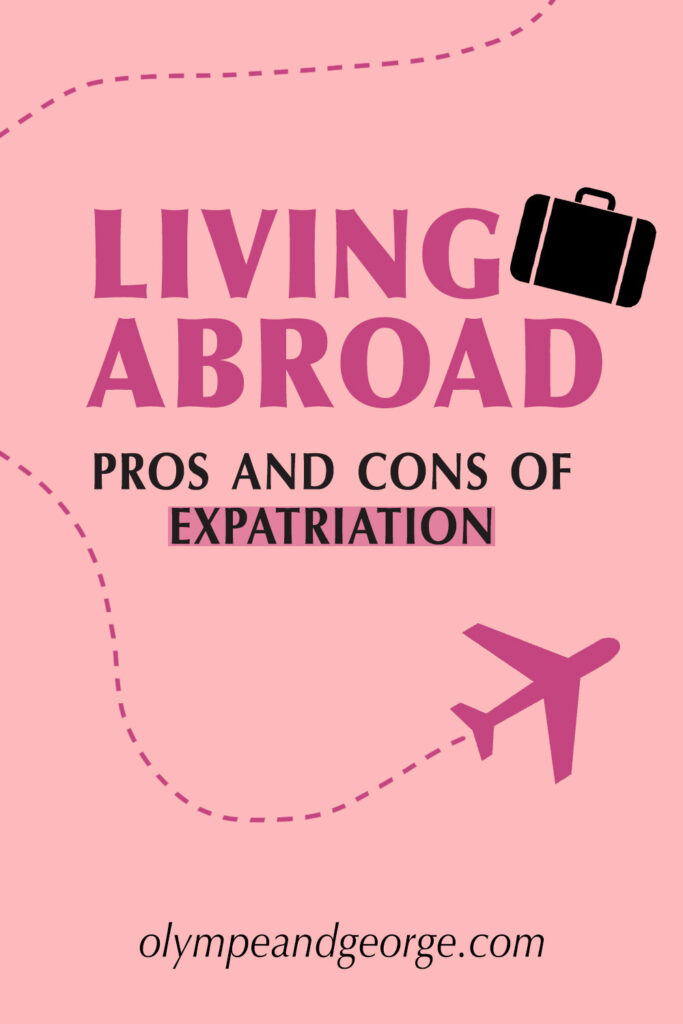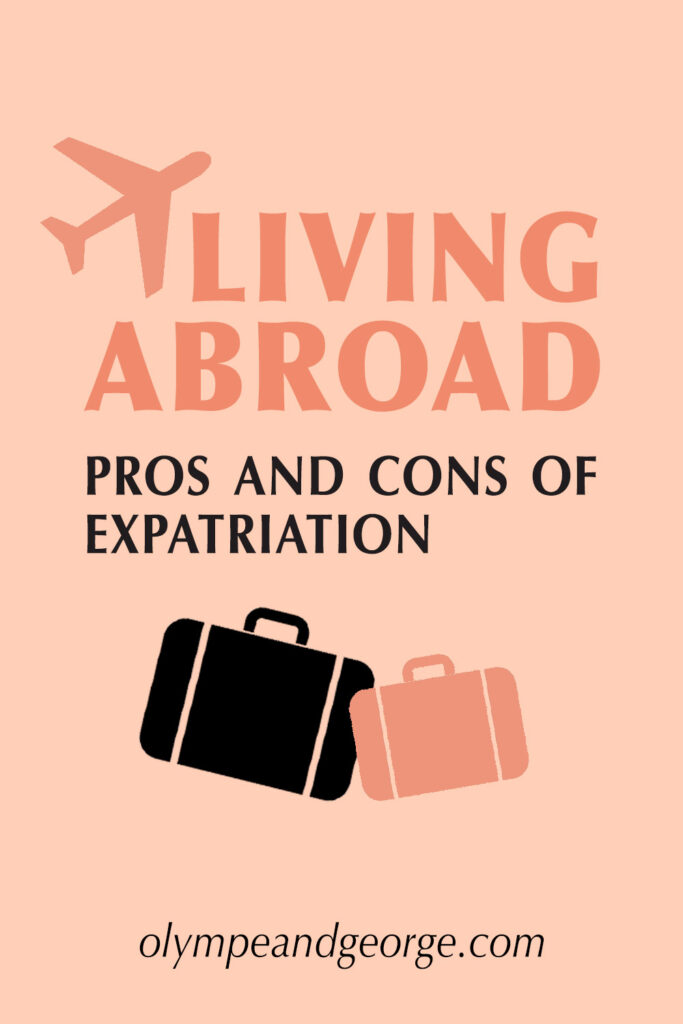I have been expatriated for more than two years now, so let’s talk about living abroad and its advantages and disadvantages.
For more background, I come from France, I have studied in Canada for a semester, also spent 4 months in Australia, and recently lived for almost two years in Ireland. I’ll be moving to Germany at the end of August.

Advantages of Living Abroad
Grows Confidence
Moving to another country is no easy task.
You have to plan for the move, understand all the particularities of the destination country.
Finding a new job is probably part of the process too.
Speaking or even learning a new language can be daunting.
And on top of that, you can add all the logistics of packing everything, travelling, and finding a new home with all the electricity, internet and phone contracts you have to set up.
But once you’re on the other side, well-settled in your new city, you feel so much braver and accomplished.
The more you move, the smaller the world gets.
It’s easier to feel confident when the world isn’t so big and scary anymore. Your comfort zone doubles.
Discovering a new culture to discover yourself
When you stay in one country, all you know is normal to you.
And even though you might recognise other places have different cultures, you don’t face that fact every day.
The beauty of learning about a different culture is that it pushes you to question your beliefs.
Your values are often tightly tied to your culture.
Living elsewhere opens up your horizon and helps reevaluate what you think is working or not, and important or not.
For example, I grew up near Paris and was taught to be afraid of strangers.
Then I lived in Canada, Australia and Ireland, arguably some of the friendliest countries on earth. And what a shock that was.
People in those countries are taught to be open and welcoming.
I had to learn a new belief that strangers aren’t scary and being welcoming and friendly are now part of my values and objectives.
You can’t know something can be questioned until you’ve experienced a different way.
Discover new things and understand what your core values are.
Learning a new language (and new skills)
When you move to a country that does not speak your mother tongue and you put in some effort, you will learn the language.
Your brain’s plasticity changes to be efficient and understand the language you’re surrounded with.
That obviously only works if you move to a country that speaks a different language than yours.
From my own experience, my mother tongue is French and I’ve so far only lived in English-speaking countries.
Now that I’m satisfied with my English skills, I was ready to take on a new challenge, hence the upcoming move to Germany.
As mentioned in my 30 before 30 goals list, one of my objectives is to become properly polyglot (speak 4 languages or more). I feel like I can only achieve that goal if I’m immersed in the languages.
Beyond personal objectives, studies have shown that bilingual people earn between 5 to 20% more than their monolingual counterparts.
That’s probably a good investment to make in yourself.
In addition to your language skills, you also learn to be more adaptive, open-minded and innovative.
Those are some great skills to have in life and work.
Other advantages
It’s a great adventure and allows you to travel and discover regions as a local.
You meet interesting new people and grow as a human because of it. It’s a way to escape a restrictive social circle and class.
You avoid stagnation and you’re constantly discovering new things.
Living abroad gives you a new appreciation for your country and relationships. You cherish the fewer times you see your friends and family.

Disadvantages of Living Abroad
Set-up costs
Moving can be costly. That’s true whether you move a mile away or a country away.
Setting up new contracts, paying a deposit on a flat, buying flight tickets and luggage, it all adds up.
It might be an investment and bring more money in the long run but that’s something you have to decide for yourself.
Away from friends and family
This also varies depending on your relationships and personality.
Some people wouldn’t live more than 15 minutes away from their family, others wouldn’t live less than 15 hours away.
I usually don’t have much of an issue with this, the only times it is annoying is when someone gets sick or hurt and you’d like to be there for them.
You’re more dependant on flights and trains and are less flexible to just show up and support people.
This downside of living abroad will depend on your situation and preferences for sure.
Everything is harder…
…but that’s how you grow.
Culture shock is a real phenomenon and figuring things out takes time.
You don’t grow your adaptive skills without pain, it comes from experience.
So don’t think expatriation is all rainbows and sunshine. It comes with its struggles but it’s worth it in my opinion.
Living abroad is a character-defining experience. You grow so much from an expatriation but you have to consider the downsides properly.
If you decide to move forward, which country will you move to?


